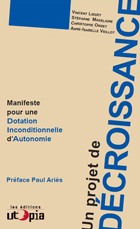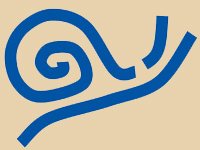 For over a year, « A Degrowth Project » has been invited to participate to Institute of Desirable Futures’s Lab Session. Lab Sessions provide “a two-way journey into the complexity during which some 20 participants from diverse horizons explore the limits of our reality to better overcome them”. The Lab Session provide a prospective experience in deciphering the present using contemporary world cartographies and experimentations, testimonies and know-hows, weak signals and questions.
For over a year, « A Degrowth Project » has been invited to participate to Institute of Desirable Futures’s Lab Session. Lab Sessions provide “a two-way journey into the complexity during which some 20 participants from diverse horizons explore the limits of our reality to better overcome them”. The Lab Session provide a prospective experience in deciphering the present using contemporary world cartographies and experimentations, testimonies and know-hows, weak signals and questions.
Here is the summary of our last session with Sophie Dumaret, a resident journalist at Lab#4:
“With Vincent Liegey, we explore the anti-thesis of the contemporary paradigm: Degrowth. A Growth Objector, Vincent introduces the term and its meaning. In the first instance, Degrowth is a “semantic bomb”, a tool to question the religion of Growth we have been bottled-fed since birth and to gather some hindsight on Growth erected as the ultimate end game and the cure to all our ills. This term encompasses a pathway for a transformation, the decolonisation of our imaginary and a detox plan. By repositioning meaning at the centre of the debate, by unravelling the absurdity of the unfettered growth of the last decades and by being disconnected from the essential – wellbeing – the idea of “Degrowth” opens the doors of the possibles. Once we are freed from this dogma, it is a matter of “ thinking what an economically, socially just and respectful of the environment society would look like” and “ to build transitions towards new models of desirable societies “.
 Vincent presents A Degrowth Project (http://www.projet-decroissance.net/page? id=28). Here is the synthesis of the key elements:
Vincent presents A Degrowth Project (http://www.projet-decroissance.net/page? id=28). Here is the synthesis of the key elements:
- Unconditional Autonomy Allowance (UAA): It is conceived as a tool to get out of this “economic fear” that hinders initiatives. This life-long guaranteed minimum income would uncouple work (constrained) and activity (source of meaning and value for the society).
- The extension of the spheres of free access to resources within a logic whereby the right usage of a resource (for example water) would be free and misuse would be taxed.
- Minimum Acceptable Income to reduce inequalities and the ostentatious rivalry that feeds the logic of over-consumption and the peoples’ frustrations.
If this Project still resonates as a sweet utopia, this different way of thinking: to extract oneself from a strictly commercial view of society, is gaining momentum. The many local practical alternatives attest to it: (For example: the Darwin Project), movements such as Transition Towns explore new development pathways based on resilience, relying on local democracy, cooperation and solidarities. Within the business field, the dynamic is enacted by Entrepreneur d’avenir (Entrepreneurs for the Future) or l’Economie Sociale et Solidaire (ESS – Social and Solidarity Economy) that re-injects meaning into the market economy: all are examples of a possible transition that is already underway.
Sophie Dumaret, journalist.
Published on the 31rst of March 2014 on the Lab Session website.


